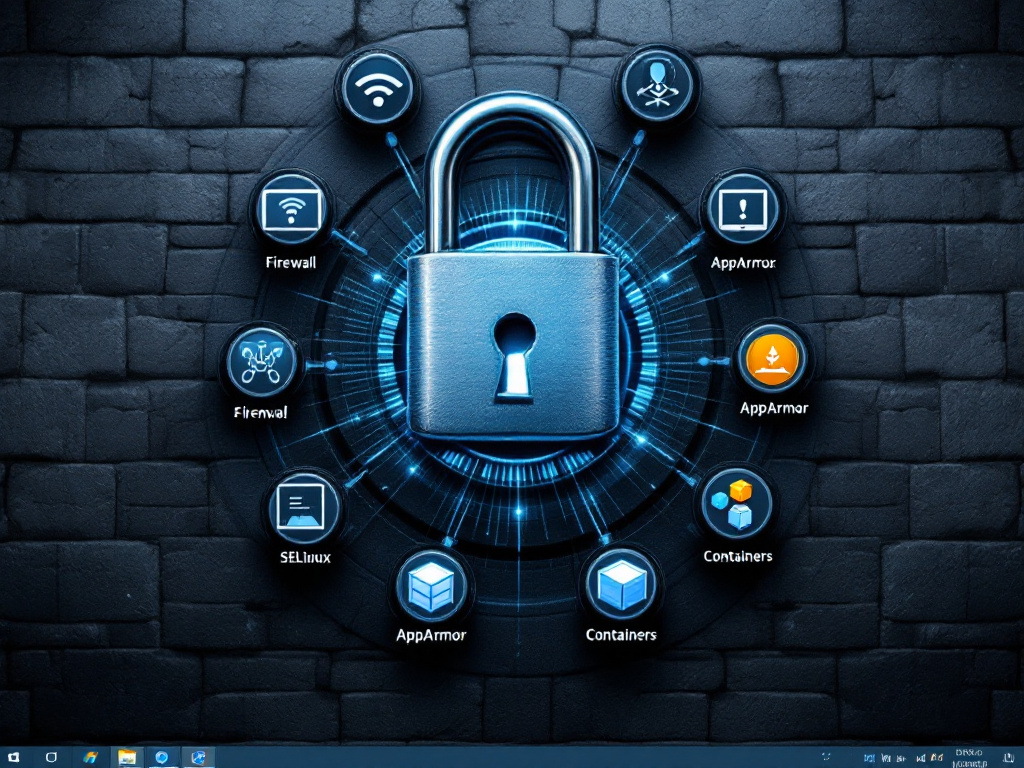When it comes to operating system security, Linux is often praised as one of the safest options available. But why is Linux considered more secure than Windows or macOS? In this article, we'll explore Linux security, focusing on its architecture, built-in protection features, and how it compares to other operating systems.
The Architecture Behind Linux Security
1. Linux Kernel and Permissions Management
The Linux kernel is the backbone of the system's security. It manages access to all system resources, ensuring that users and applications only have the privileges they need. Unlike Windows, where apps often run with high privileges, Linux restricts most applications to lower permissions. This minimizes the damage a compromised program can cause.
2. Users and Groups
In Linux, everything is treated as a file, and every file has an owner, group, and access permissions. This helps keep user data isolated and prevents unauthorized access. This strict permission system makes it more difficult for malicious actors to exploit the system.
The Diffusion Myth: Does Popularity Affect Security?
Many believe that because Linux is less popular than Windows, it is inherently more secure. The theory is that hackers target Windows more due to its larger user base. While this is true, the security of an operating system depends more on its design than on its popularity.
Linux, although less widespread on desktops, is a dominant force on servers and embedded devices. Even though Windows is the primary target for malware due to its large consumer base, Linux is still incredibly secure due to its strong architectural protections.
How Linux Stands Out in Security Features
1. Linux Permissions and User Management
The permissions system in Linux is one of its strongest points. Users typically operate with limited privileges, and to perform tasks that require elevated access, they must use sudo or su. This greatly reduces the risk of unauthorized access.
2. Isolation of Applications
Linux has strong tools for isolating applications. Technologies like containers (Docker, LXC) and sandboxing limit the potential damage that a compromised application can cause. This isolation is much more robust than what is available on Windows or macOS.
3. Security Patches and Updates
Linux also benefits from frequent security updates. Centralized package management systems like APT (Debian/Ubuntu) and YUM (Fedora) make it easy to keep your system up to date, ensuring vulnerabilities are patched quickly. This is in contrast to Windows, where security updates can sometimes be delayed or ignored by users.
Tools That Enhance Linux Security
1. SELinux and AppArmor
SELinux (Security-Enhanced Linux) is an advanced security module that adds an extra layer of protection by enforcing mandatory access controls (MAC). If you want even more control over your system’s security, tools like AppArmor offer an easier way to manage security profiles for applications.
2. Firewalls and VPNs
Linux also includes robust tools for protecting your system from network threats. iptables and nftables are used to define detailed firewall rules, while VPN software like OpenVPN or WireGuard ensures that network traffic is encrypted, protecting sensitive data from eavesdropping.
Linux vs. Windows and macOS: Security Comparison
While Linux is often considered more secure, both Windows and macOS have made improvements over the years. However, Linux stands out due to its open-source nature, active community, and system design, which makes it harder for attackers to exploit.
- Windows has a larger user base, making it a more attractive target for malware.
- macOS benefits from a controlled ecosystem but still faces targeted attacks.
- Linux, despite having a smaller user base on desktops, benefits from a strong security architecture and community-driven updates.
The Role of the Open-Source Community in Linux Security
One of the greatest advantages of Linux is its open-source nature. The Linux community plays a critical role in maintaining the system’s security. With thousands of developers working to identify and fix vulnerabilities, Linux benefits from a collaborative approach that makes it a secure platform for both personal and enterprise use.
Tips for Enhancing Linux Security
To keep your Linux system secure, consider these best practices:
- Enable SELinux or AppArmor for enhanced security.
- Always keep your system updated with the latest security patches.
- Configure your firewall to limit unnecessary network access.
- Use SSH keys for secure remote access instead of passwords.
- Regularly back up your data and encrypt sensitive information.
Is Linux Truly More Secure?
In summary, Linux offers one of the most secure operating systems available today. Its security architecture, combined with tools like SELinux, AppArmor, and frequent security updates, make it a top choice for users who prioritize system safety. While Linux is not invulnerable, it provides a robust defense against most security threats, especially when properly configured and maintained.








Leave a Comment